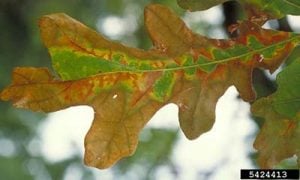In recent years you may have heard of a disease affecting Italian olive trees which has devastated entire olive groves and is responsible for the loss of thousand-year-old trees. The disease, sometimes referred to as “quick decline” or “olive tree leprosy”, is caused by the bacterium Xylella fastidiosa. It lives in the water transport structures of plants known as xylem and interferes with the absorption of water.
Australia’s number one National Priority Plant Pest
Xylella has been dubbed Australia’s number one National Priority Plant Pest. As many as 350 plants in Australia may be at risk. It has the potential to affect native and ornamental plants, as well as major horticultural industries such as almonds, citrus and grapes. There is no treatment for the disease, and it has not yet been shown that the bacteria can be successfully eradicated.
A spreading threat
Despite the growing distribution of Xylella across the Americas, Europe and the Middle East, Australia currently benefits from its relative geographic isolation and remains free of the disease. However, the bacteria or one of its insect vectors may hitch a ride to Australia on imported goods, shipping containers, or infected propagation materials and live plants.
Protecting Australian plants from Xylella
Learn to identify Xylella and exotic insect vectors

Image: John Hartman, University of Kentucky, Bugwood.org
Symptoms of the disease include leaf scorching and browning, loss of leaves, gradual decline in fruit size, stunted growth, dieback and, eventually, plant death.
The bacteria can be spread by many plant-sucking insects such as spittle bugs and the exotic glassy winged sharpshooter (Homalodisca vitripennis). Glassy winged sharpshooters are large insects (about 12-14 mm long). They are dark brown with stippled spots on their head and back and have transparent wings with reddish veins.
Secure any suspect plants or insects
If you suspect you have seen Xylella or one of its vectors place small plants in plastic bags, and, if possible, capture and contain insects.
Report your suspicions or detections

Call the Exotic Plant Pest Hotline 1800 084 881 to report your suspect finding.
Further information
Plant Health Australia
Department of Agriculture, Water and the Environment
Australian Academy of Science video
